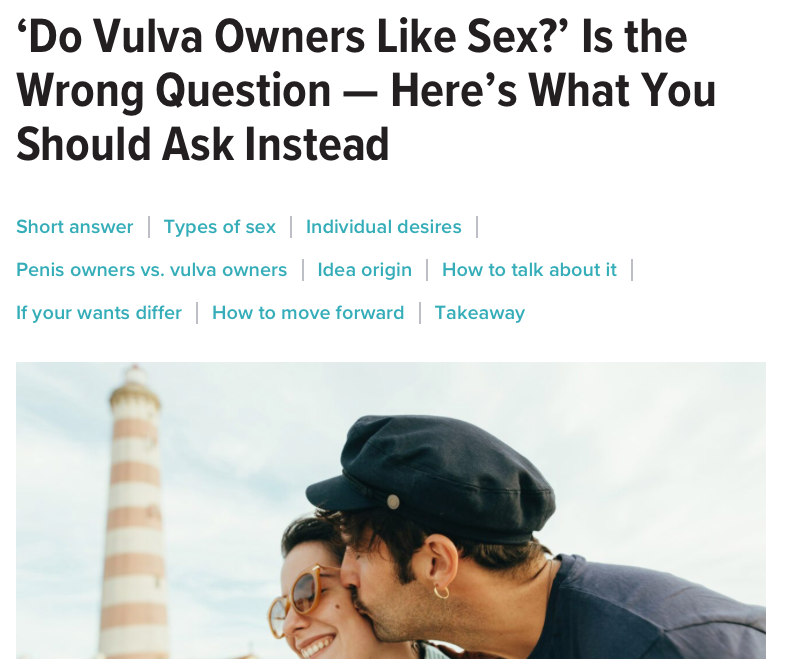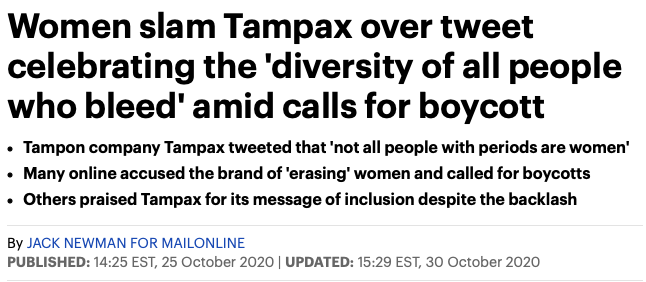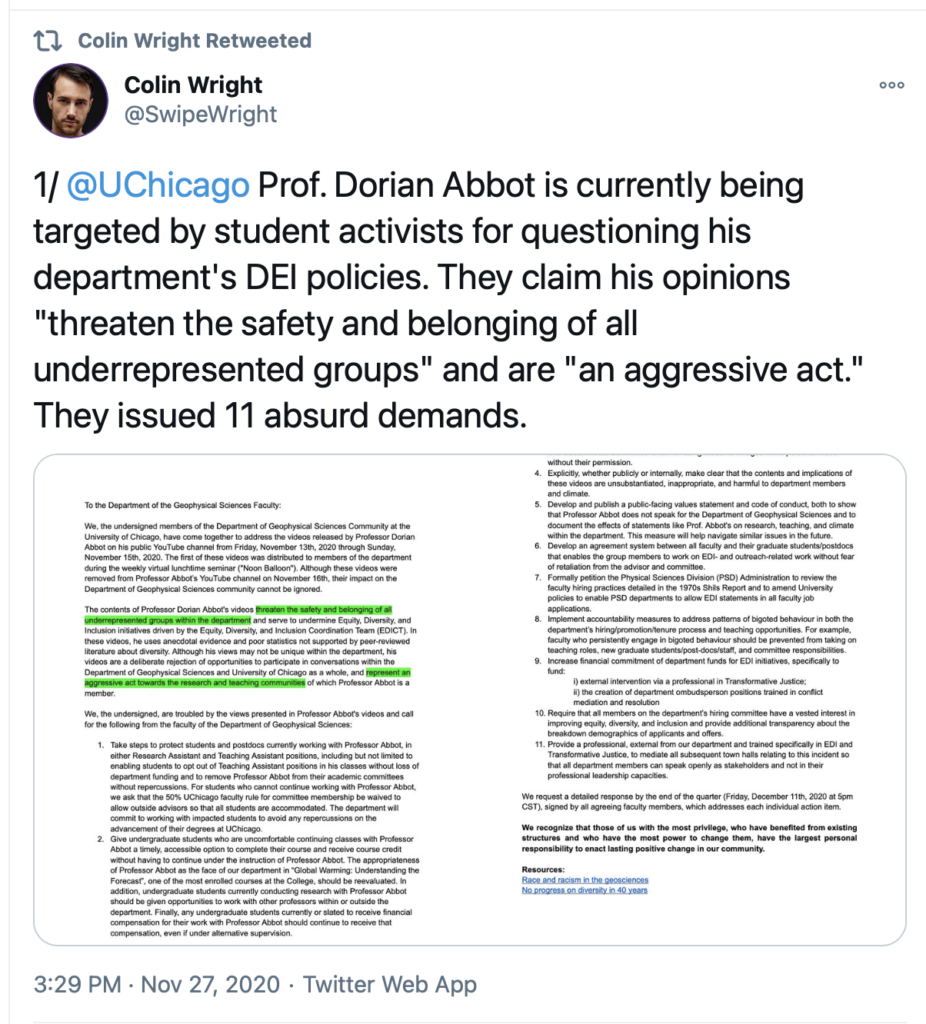A Detailed Case-Study in Theatrical Woke Defiance at Haverford College
In "Race and Social Panic at Haverford: A Case Study in Educational Dysfunction," Quillette's Jonathan Kay gives a detailed account of how Woke-permeated campus-wide insanity can be triggered by nothing in particular. Kay makes a strong case that Haverford College, a private and expensive far-left-leaning liberal arts institution, self-spiraled into moral panic in a way that brings to mind the meltdown of Evergreen State, a story told and experienced by evolutionary psychology professors Brett Weinstein and Heather Heying. See also, Weinstein's discussion of Evergreen with his brother, Podcaster Eric Weinstein ("The Portal").
The self-annointed thought police are still working overtime at Haverford, where free-speech is merely a phrase and where tribal truths are the reality. I could not imagine sending any student to Haverford if they wanted to learn how to think self-critically and be prepared to hold a job in the outside world.
Jonathan Kay's long article leaves a pit in my stomach and casts a pall over my evening as I write this comment. He needed to fill his article with an extraordinary amount of details in order to substantiate his extraordinary conclusions, including the following: A) Nothing insensitive or racist occurred at Haverford College leading up to the current shrill unrest. B) Nothing that happened at Haverford justified the long ridiculous list of student demands (to which the administration mostly acceded). C) Most chillingly, the administrators of Haverford (and many other colleges) lack the the necessary resources to have meaningful conversations with students or to take respectable negotiating positions during these Woke-fueled paroxysms.
A few excerpts from Jonathan Kay's excellent article:
[T]he mania that swept Haverford College in late October and early November 2020 lays bare, with unusual clarity, the fervid atmosphere of grievance and self-entitlement that has made the administration of elite colleges and universities so difficult.
Of all the Haverford community members I spoke with, the only one who asked to be quoted by name was recently graduated philosophy major Alex Gutierrez, who once summarized the mindset of campus activists in an essay about Jacques Lacan. “Modern activists have psyches that are built for the joy of transgression,” he observed. “They engage in activism so they can repeatedly experience that joy, a joy that is denied them in everyday life because everyday life is dominated by the ethics of pleasure… And so they need to invent fictional dominant orders so that they can defy them. This is why protesters would actually be extremely unhappy if oppression went away. They want white patriarchy to be as powerful as possible, so they can defy it.”
Gutierrez wrote these words before his alma mater fell into upheaval in late October. But his analysis seems apt. When students complained that Raymond had caused them “harm” with her October 28th email, they weren’t really speaking up as activists denouncing racism on campus (since there doesn’t seem to be much of it), but as consumers whose parents paid good money for them to experience the sensation of transgressive social-justice heroism. “Normally, the administrators are the perfect target for student transgression,” Gutierrez told me. “They take the abuse and they’re not supposed to push back. That’s part of their role. That’s what students expect.”



